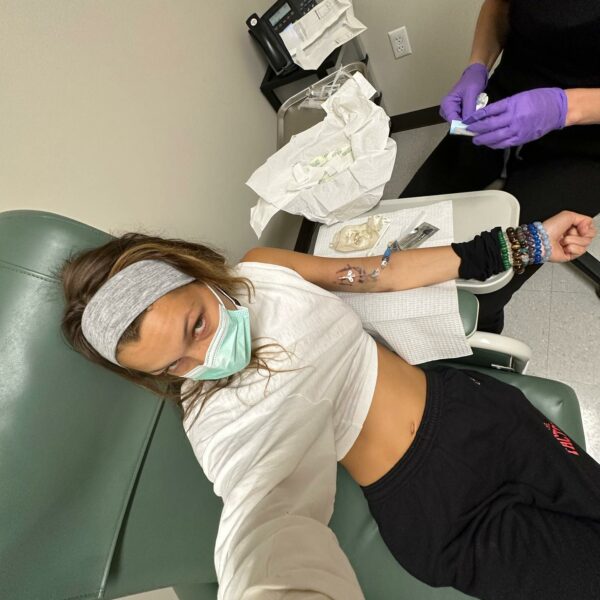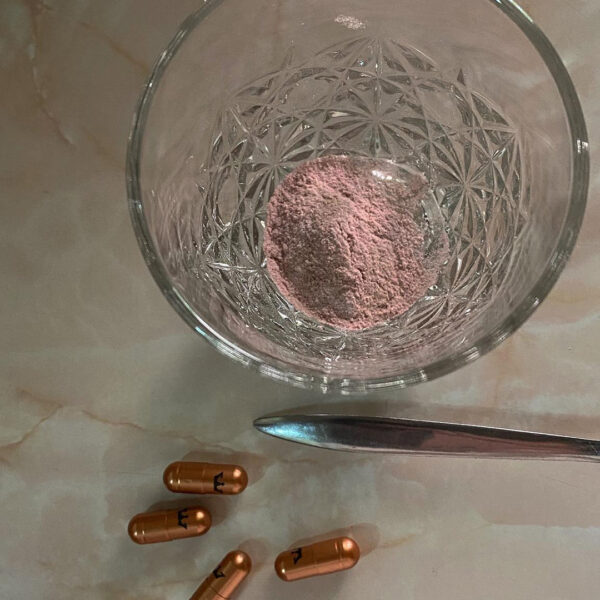We are on a lifelong quest to adhere to anti-inflammatory tricks, foods, and products, but how about preventing inflammation before it even happens? A lot of the foods and ingredients we eat daily—whether we choose to eat them or they sneak into our snacks and meals—wreak havoc on our insides and cause our body to have inflammatory reactions. The trick is to make sure we’re always reading our labels, as well as experimenting with what works and what doesn’t.
While some foods may trigger inflammation in some people and not in others, author, registered dietitian, and nutritionist, Sarah Mirkin, says it’s best to avoid known inflammatory triggers regardless of what our personal experience might say. Not all inflammation is immediately apparent, and in fact, most of the dangers around inflammation are due to long-term exposure to these triggers.
Juice and soda—both are loaded with sugar
“Simple sugars, especially when eaten alone, will trigger blood sugar spikes leading to chronic inflammation by increasing pro-inflammatory cytokines. Studies suggest sodas and fruit juices are a major cause of diabetes and obesity in our country. Inflammation is the cause for most major diseases and chronic illness.”
OK, so we probably already knew that sugar was bad. But Mirkin explains that processed sugar and even natural sugars in juices and juice concentrates are dangerous, especially if we don’t have a diet rich in fiber.
Excess carbohydrates, especially processed carbs
“Too many carbohydrates will also cause blood sugar to spike and trigger inflammation, even if they are whole grain. Too much of any carbohydrate is not a good thing. Try to balance carbs with protein and healthy fats. Processed carbs will trigger a higher inflammatory response than their whole-grain counterparts, due to their very low or no fiber content. This causes a blood sugar spike, triggering an inflammatory response.”
So if you’re having fruit (which yes, has fiber, but is also a big source of carbs and sugar), have some nuts or yogurt—both of which contain fat and protein to stabilize the blood sugar spike and keep you satisfied, instead of hangry in 20 minutes.
“Trans fats are chemically altered fats that trigger inflammation and should be avoided as much as possible to prevent heart disease and most other disease conditions.” You’ll find trans fats in ingredients and foods that contain hydrogenated oils and partially hydrogenated oils. They are predominant in fast food, even though the FDA determined that partially hydrogenated oils are no longer Generally Recognized as Safe (GRAS) in human food. Yikes.
“Research suggests that excessive intake of alcohol is linked to inflammation.” This is probably not news to anyone, and if any of us have ever had a bad hangover, we’ve all experienced a small part of the disastrous onslaught that follows excessive drinking. But even regularly drinking in moderation can have an effect on inflammation and our immune responses, and can build into something serious over time.
“Studies suggest that eating red meats will cause CRP (C-reactive protein) levels to increase in your blood, which is an indicating marker of inflammation and heart disease risk.” This doesn’t mean all protein is bad. Poultry, fish, legumes, and nuts are all great sources of protein and have been shown to provide significantly lower CRP levels when swapped for red meat. If you really can’t live without a steak, just remember all things in moderation. Keeping these inflammatory triggers at the forefront of your mind is the next best step.
The content provided in this article is provided for information purposes only and is not a substitute for professional advice and consultation, including professional medical advice and consultation; it is provided with the understanding that Poosh, LLC (“Poosh”) is not engaged in the provision or rendering of medical advice or services. The opinions and content included in the article are the views of the interviewee only, and Poosh does not endorse or recommend any such content or information, or any product or service mentioned in the article. You understand and agree that Poosh shall not be liable for any claim, loss, or damage arising out of the use of, or reliance upon any content or information in the article.
Up next, be the first to know our weekly content and sign up for our Poosh newsletter.




































